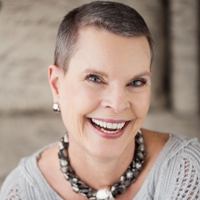
ABC News reported this week that a private funeral service was held to bury two and a half year old Bella Bond.
The Massachusetts toddler was found wrapped in a blanket, inside a garbage bag, on Deer Island in June. Her mother and boyfriend have been charged in connection with her death.
Baby Doe, by which she was known for so long, is a bella—a beauty.
An adorable little dark eyed pixie, this two-and-a-half-year-old child has haunted me.
It took 83 days to identify her. There are those who, looking back, say that Bella’s mother looked as if she’d gone back to using (drugs), that she was dangerously thin. Neighbors said she’d step outside for a cigarette, clearly strung out, leaving Bella crying in the house.
Friends texted Bella’s mother to see how she was doing, but when she didn’t reply, they let it go. Others assumed, when Bella wasn’t seen playing outside, that she’d been taken by the DCF (Department of Children and Families).
But no one intruded on this family for clarity on Bella’s behalf. No one trusted their gut instincts enough to take reporting to the next level.
Is it because social norms hold family privacy a notch above activism on behalf of a child? That we don’t want to make someone angry? That it’s really none of our business? Why didn’t people go the second mile when curiosity laced with knowledge signaled something might be wrong?
After Baby Doe was found, the National Center for Missing and Exploited Children circulated a composite photo that was remarkably accurate, in an effort to identify her, and no one—not neighbors, not the DCF (who had opened a case on Bella’s behalf for neglect at least two times, then closed them) not the Mary Eliza Mahoney House Family Shelter staff where Bella and her mother apparently lived for a time—no one made the connection. No one.
I watched the arraignment live. I heard details previously unannounced and my heart shook in tears for this child.
Rachelle and Michael (Bella’s mother and boyfriend) had a long time friend who lived with them for a short time, but moved out because he couldn’t stand their treatment of Bella. He checked in now and then, only to be told that DCF had taken Bella from them. Weeks after that he asked Rachelle when she thought Bella might be returned to her. She finally told him the truth—that she’d never see Bella again because her baby was dead by Michael’s hand. This friend’s sister phoned in the tip and search warrants were executed, followed by arrests.
I wonder how we, as a society, failed Bella? For we must, at some level, take a look at what we can do differently. How can we, the people, be involved in the fabric of the life of a child at risk?
I believe individuals who work in children’s services do so because they have heart for children. They certainly aren’t in it for the money. But should the full weight of responsibility rest with them alone? No.
Within the fabric of society, community is woven. Ideally, community seeks to ensure the safety of its citizens—in fact, the chief criterion for healthy community is that it is safe. As people of community, we are called upon to give voice to the voiceless—to the Bella’s of this world.
If you find yourself in a situation where you suspect child abuse but aren’t sure, here are seven steps you can take:
1. When you have a gut feeling that something isn’t right, don’t ignore it. Follow your instincts, hone in on what’s happening around you.
2. Learn more. Not sure what you’re witnessing is normal? It’s important to know the signs of child abuse.
3. Tell the child they can always talk to you, about anything, whenever they like.
4. Keep a diary. Often it’s helpful to be able to go back to this history—time, date, what you observed and where it happened.
5. Get someone else’s perspective, talk to a trusted friend about your concerns.
6. Call a helpline counselor, ask their opinion of your concerns.
7. Report your worries; you can do this anonymously, if you like.
(Please note: If a child is in immediate danger, call Child Protective Services or 911.)
Even if it makes you uncomfortable, even if you think you might be crossing some socially accepted boundary of privacy, even if you’re not 100% sure, err on the side of the child. We, you and I, everyday citizens of this country, have a profound duty to protect our children.
~
Relephant:
When a History of Sexual Abuse is Revealed.
~
Author: Laura Landgraf
Editor: Sarah Kolkka
Image: from NCMEC (National Center for Missing and Exploited Children)










Read 1 comment and reply